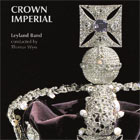Leyland Band has enjoyed a musical connection with Philip Littlemore for many years, and gave a memorable rendition of his transcription of music from ‘Boris Godunov’ at the European Conductor’s competition in Birmingham as far back as 2000.
That fertile link continues with this recording, which showcases a number of new arrangements, enlivened old favourites and fresh repertoire which has been expertly connected in a coherent programme, much of it linked to the pageantry of state occasions.
Pomp and circumstance
The most well-known items are Elgar’s ‘Nimrod’ and ‘Pomp and Circumstance’, together with Walton’s ‘Crown Imperial’.
The latter owed much of its scale to the requirements of Westminster Abbey, but even the composer felt the full version outstayed its welcome, and Philip has based his arrangement on the shorter version prepared after the event.
Ireland gem
Anyone looking for an alternative marches would do well to consider John Ireland’s ‘Epic March’, premiered during the 1942 series of Promenade Concerts. Darker in mood than the afore-mentioned works, it suits a fine brass band well, with telling use of xylophone and tubular bells.
Ralph Vaughan Williams had something of a late burst of musical inspiration with his last three symphonies, tuba concerto and harmonica concerto all dating from his later years.
His ‘Eighth Symphony’ is fairly modestly scored, but includes a large and colourful selection of percussion instruments. These are centre stage in the finale, ‘Toccata’, the music being of a rather restless nature.
Master musician
As Master of the Queen’s Music Arthur Bliss was called upon to celebrate many special occasions, penning a number of fanfares together with the more substantial ‘Welcome the Queen’, written to mark the return of Queen Elizabeth II from a Commonwealth tour.
The Handel suite provides a welcome contrast, with some lovely stylistic touches - the use of various choirs of instruments mirroring the contrasting timbres found in the original with its massed horns, oboes and trumpets.
It also allows the band to have its head a little, set against the commendable restraint shown in much of the programme.
Time for reflection
Iain McKnight has produced an effective version of the hymn tune ‘Blaenwern’, allowing the music to speak for itself but with some distinctive harmonies at the end, although for this listener, Geoff Knorr’s take on ‘I vow to thee my Country’, originally part of incidental music for the video game ‘Civilisation V’, is rather less successful.
Light music favourite
‘The Westminster Waltz’ seems somewhat out of place alongside the rest of the repertoire, but it is good to have a fresh arrangement of this perennial favourite.
The band clearly enjoyed playing it, and there is some effective decoration on glockenspiel.
Herbert Howell reworked
‘King’s Herald’, from Herbert Howell’s suite ‘Pageantry’, was orchestrated by the composer for the 1937 coronation, including a total of six trumpets and expanding the opening fanfare section: Philip’s setting expertly incorporates these additions.
All in all, there is much to enjoy here, even if it is not a programme that one would necessarily sit through from start to finish.
Apart from a couple of minor lapses in intonation, the band is in good form, topped off by some fine soprano playing.
Peter Bale
Contents
1. Welcome the Queen, Arthur Bliss, [7'04"]
2. Epic March, John Ireland, [7'24"]
3. Blaenwern, William Rowlands, [4'21"]
4. Toccata (from Symphony No.8), Ralph Vaughan Williams, [4'54"]
Music for the Royal Fireworks, George Frederick Handel
5. I — Overture, [8'37"]
6. II — Bourée, [2'13"]
7. III — La Paix, [2'30"]
8. IV — Minuets I & II, [2'43"]
9. V — La Réjouissance, [2'50"]
10. Crown Imperial, William Walton, [6'59"]
11. Nimrod (from the 'Enigma Variations'), Edward Elgar, [4'00"]
12. King’s Herald, Herbert Howells, [4'40"]
13. The Westminster Waltz, Robert Farnon, [2'49"]
14. I Vow To Thee, My Country, Gustav Holst/Geoff Knorr, [5'40"]
15. Pomp & Circumstance March No.1, Edward Elgar, [6'48"]
Arrangers, Phillip Littlemore, (1-2, 4, 10-15), Iain McKnight, (3) and Don Blakeson, (5-9)










